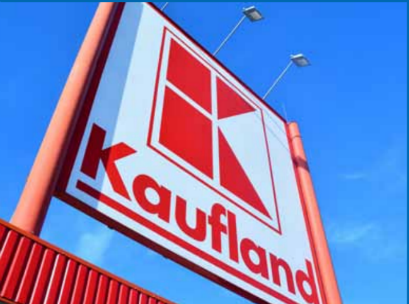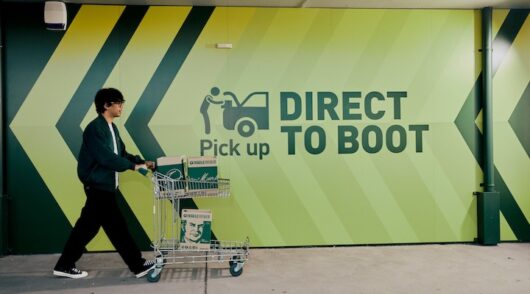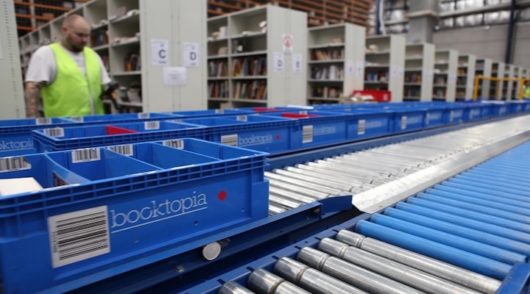 Coles and Woolworths may be increasingly looking beyond price to excite discount-fatigued shoppers, but the supermarket wars might not be over just yet.
Coles and Woolworths may be increasingly looking beyond price to excite discount-fatigued shoppers, but the supermarket wars might not be over just yet.
German discount grocer Kaufland is busy preparing for the launch of its first Australian store and could open several hundred more in the coming years, lifting competitive intensity in the local market, according to Morgan Stanley analysts.
In a new report assessing the potential impact of Kaufland, Morgan Stanley analysts Thomas Kierath, Monique Rooney and John Lee have contended that the discount disruption kicked off by Aldi more than a decade ago is just getting started.
“The Australian supermarket industry is ripe for further discounter disruption as Kaufland soon enters,” they said. “Kaufland’s entry to Australia likely limits market growth, reduces the prospects for considerable margin expansion and leads to a sector P/E de-rating.”
Morgan Stanley expects the company to open its first 7-10 Australian stores in late 2019 or early 2020 ahead of what could theoretically be between 133-295 locations across the country in the longer term, based on its store penetration in Europe.
Sales of $480 million are expected by FY20, ballooning to $3.3 billion by FY26 as its store count increases from 8 to 56.
Kaufland, owned by the world’s fourth largest retailer Schwarz Group, is well known for its large Hypermarket stores in Europe, where it has more than 1,260 locations.
It has so far purchased a 36km site in South Australia as well as a 12km former Bunnings site in Victoria and is currently on a hiring blitz to build out its property and merchandising talent locally.
Analysts said Kaufland is bullish on Australia as a relatively high growth market with low discount penetration by global standards and that its decision to follow Aldi into new markets is true to form.
“Australia is a high labour cost country, which allows discounters [due to lower labour to sales ratios] to operate with lower prices relative to mainline supermarkets,” they said.
Kaufland is expected to be buoyed by a recent influx of big-box space onto the market following the exit of failed home improvement chain Masters and broader consolidation in the local retail sector, but analysts say it will be a slow burn.
“It took consumers a long time to fully ‘accept’ Aldi as a mainstream supermarket, we think that it will also take consumers time to adopt Kaufland,” they said.
Fresh will become “far more” competitive
The launch will likely materially impact Coles and Woolies within a year of its local launch though, Morgan Stanley has forecast, trimming its earnings margin and sales growth horizons for Coles to FY21, reflecting the impact Kaufland is likely to have on its improvement efforts.
The analysts have left their forecasts for Woolworths relatively unchanged but outlined a worst case scenario where Woolworths’ earnings margins could decline by up to 170 basis points in the years following the launch.
“As discounters gain share industry sales growth will remain low and prospects for considerable margin expansion are unlikely,” they said.
The launch is expected to place specific pressure on the recent efforts of both chains to gain share in fresh.
“Kaufland prioritises fresh food so as it rolls out and Aldi completes its fresh based renewal program, fresh food market share gains will be more difficult for the majors,” the analysts said, predicting that the fresh market will become “far more” competitive.
Headwinds for Aldi
But Morgan Stanley believes that Kaufland will pose the most direct competitive threat to Aldi’s ongoing Australian expansion, potentially disrupting its status as a price setter.
“Kaufland’s discount offer will compete most directly with Aldi and as such we think Aldi’s store rollout will be slower relative to a market without Kaufland’s entry,” the analysts said.
Morgan Stanley has cut its FY26 sales forecasts for Aldi from $20.5 billion to $19.1 billion and has tempered its store expectations from 883 outlets over the next eight or so years to 723.
While Aldi adopts a cookie-cutter expansion model and has prioritised cold grocery over fresh food initially Morgan Stanley says Kaufland will focus more heavily on fresh food and will be more flexible with its store formats, taking smaller 3,000sqm locations as well as larger 20,000sqm stores.
“Kaufland operates a number of different formats which likely means it is able to rollout stores more quickly than Aldi since it has a flexible store format,” the analysts said.
It is also anticipated that Kaufland’s focus on fresh will leave it with a superior offer to Aldi’s, despite its recent investment in expanding share outside of dry grocery.
Access exclusive analysis, locked news and reports with Inside Retail Weekly. Subscribe today and get our premium print publication delivered to your door every week.





